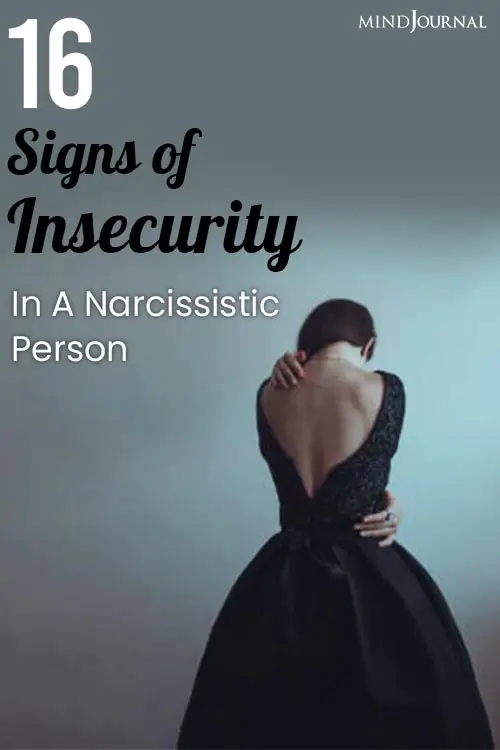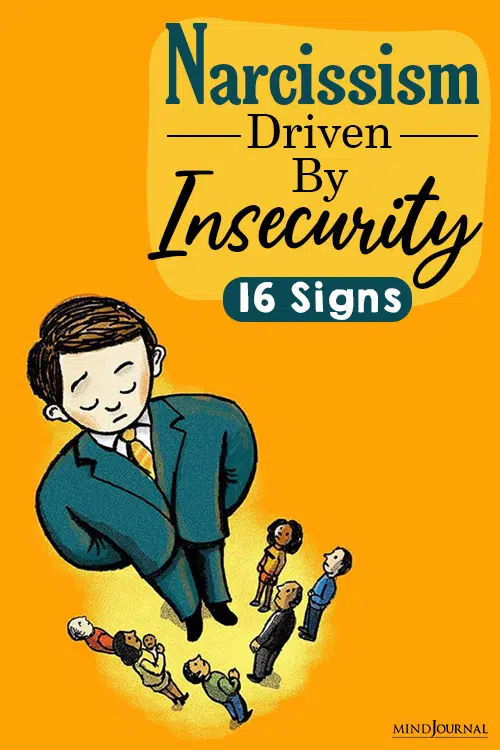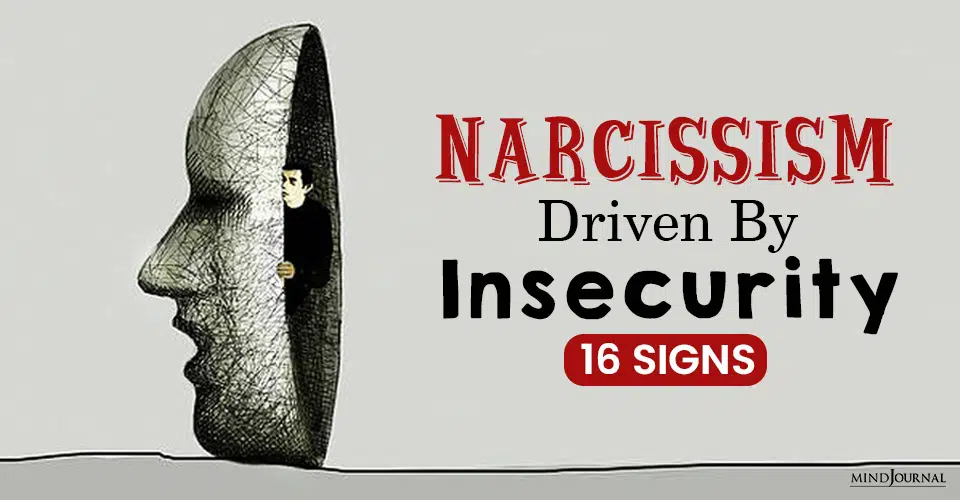Do you feel insecure most of the time? Insecure people tend to lack self-confidence and low self-esteem which hampers their growth in life. They never feel accepted or safe leading to severe emotional exhaustion. Here are a few signs of insecurity that can slowly ruin your life.
How Insecurity Makes Us Feel
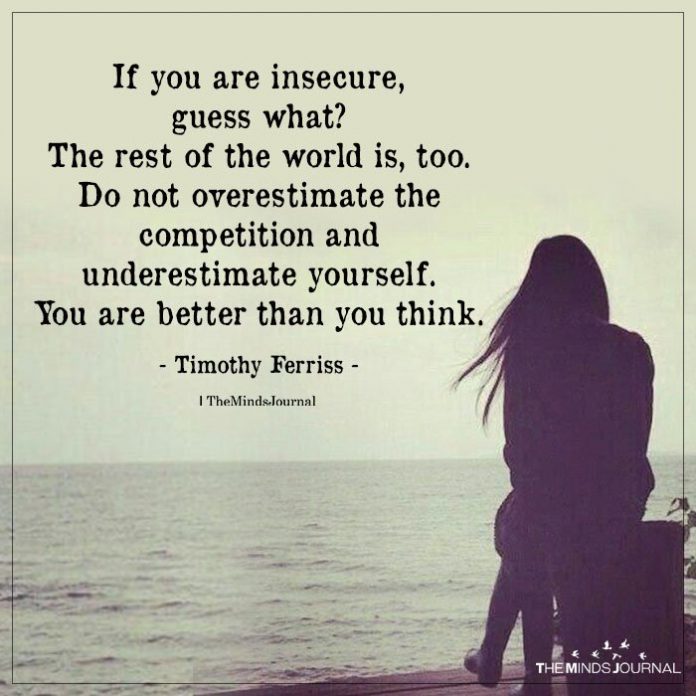
Most of us feel insecure at times. We often doubt ourselves, compare ourselves with others, and think that they are better than us. We feel vulnerable and unsafe. Yet we try our best to not show it in front of others. Most of the time we misunderstand our insecurities and either feel jealous of others or lose the confidence to do something with gusto.
However, there are some people who persistently feel insecure and live in constant fear. Health and wellness expert Caleb Backe says “Being somewhat insecure or a little jealous/paranoid is natural. We can be very possessive, sometimes without even meaning it… But this changes when you start acting on your insecurities.”
Insecure people fail to identify their anxiety, fear, and insecurities, they pretend to be overly confident and often become manipulative leading to narcissistic tendencies. Their manipulative efforts to cover up their insecurities only make them feel less loved, valued, and accepted – the exact opposite of what they actually desire.
Related: 3 Mind Games Insecure Men Play In Relationships
In their effort to hide their insecurities, insecure people often act fake and pretend to be highly confident and secure individuals. But behind their assertive demeanor lies warning signs of insecurity which stare blankly at their faces. So they feign confidence and instead make others feel insecure and inferior. This is known as inferiority complex, theorized by Viennese psychoanalyst Alfred Adler.
Susan Krauss Whitbourne, Ph.D., author and Professor Emerita of Psychological and Brain Sciences at the University of Massachusetts Amherst, explains “According to Adler, people who feel inferior go about their days overcompensating through what he called ‘striving for superiority’.”
These individuals, who constantly feel uncertain inside their minds, can only experience happiness by “making others decidedly unhappy.” For Adler, this intense urge to feel superior is based at the core of neurosis.
Narcissism, Insecurity And Self-Esteem
Many experts believe that the signs of insecurity may hint towards narcissistic personality disorder. Narcissists are persistently focused on looking for ways to boost their brittle ego and lift their feeble self-esteem. Their need for constant attention, reassurance, validation, and admiration and their pretentiousness can even affect their social reputation and relationships. They are driven to make others feel inferior in order to make themselves feel superior due to their low self-esteem and narcissistic traits.
Psychologist James Brookes of the University of Derby conducted a study in 2015 to understand how individuals with prominent narcissistic traits observed themselves on three parameters –
- Their own efficiency
- Faith in their ability to succeed
- Their self-esteem
The study found that “Overt narcissism was positively associated with self-esteem and self-efficacy.” It also revealed that self-efficacy and self-esteem were negatively associated with covert narcissism. This can give us some idea about how the insecurities of narcissists dictate their actions and behaviors.
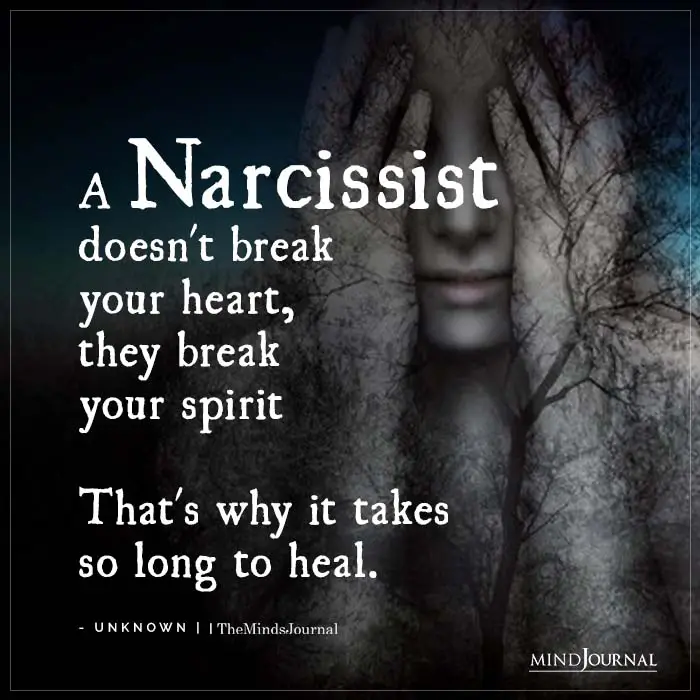
Hiding Your Insecurities
Most people try to hide their signs of insecurity and pretend to be someone they are not. They pretend to be someone they believe others will like, respect, value, and admire. They start believing the mantra “Fake it till you make it.” But in this process, they lose something truly valuable – their authentic self. “The problem is, while we might think we’re managing and hiding our insecurities most of the time, the people around us sense them all of the time,” explains best-selling author Tamara Star.
The more afraid we become of our insecurities and the harder we try to fake it, the more our genuineness is affected. However, most of us can often sense weakness and fear in ourselves and in others. So when others start noticing the signs of insecurity in you, they tend to pull back. Tamara adds “In today’s world, authenticity, credibility, and reputation are everything. No one wants to hang out or do business with someone smelling insecure or fake.”
When you are genuine and authentic, you make others feel comfortable around you and earn their trust. They see you as someone reliable and dependable. When you are real, the world will respond positively to you. “When we’re balanced and standing in our power, life unfolds easier,” adds Tamara Star. If you want to break out of your fake persona and become more real and authentic, you need to start by identifying your insecurities and acknowledging them.
Related: 10 Habits That Cause Low Self Esteem And Depression
Signs Of Insecurity
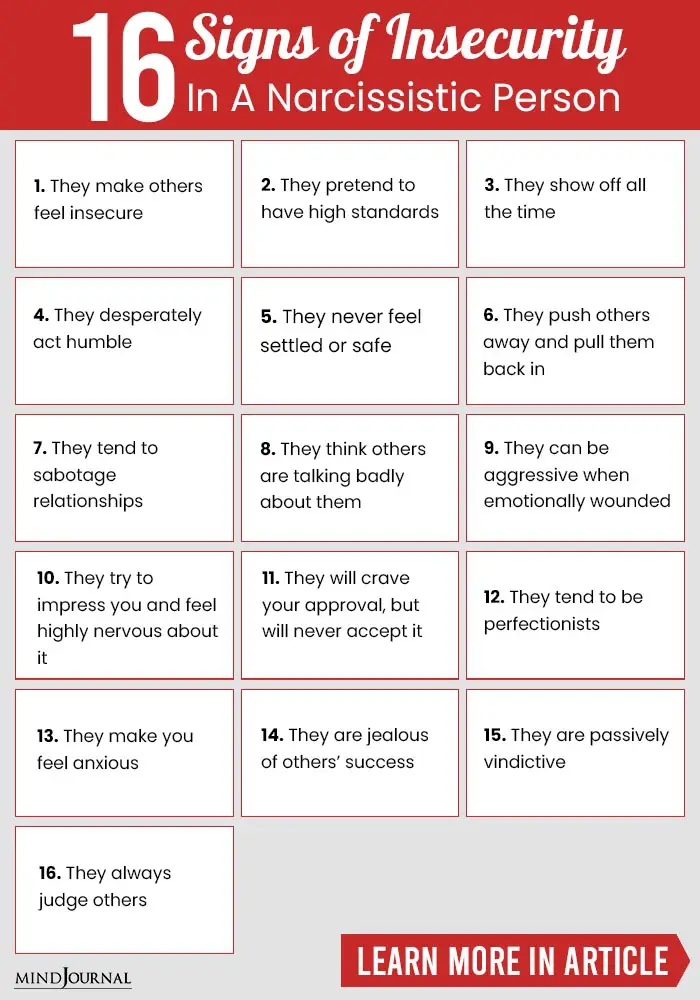
Here are some common signs of insecurity, especially in narcissistic people. That you need to look out for:
1. They make others feel insecure
When a particular person makes you feel conscious about yourself and doubt your own self-worth every time you meet them, then it is highly likely that they may be an insecure narcissist. They will always exaggerate their own strengths and achievements to make you feel inferior.
Professor Susan Krauss Whitbourne, Ph.D. writes “If you don’t feel insecure in general, but only around certain people, it’s likely they’re projecting their insecurities onto you.”
2. They pretend to have extremely high standards
Insecure people with narcissistic traits tend to always complain about how things are never good enough for their taste. They always try to find fault in everything and everyone. They may appear as snobs with high standards but the fact is, they are simply pretending to hide their own flaws and insecurities. However, their ‘act’ can make you think that you are inferior to them.
“What they’re trying to do, you may rightly suspect, is to proclaim their high standards as a way of asserting that not only are they better than everyone else, but that they hold themselves to a more rigorous set of self-assessment criteria,” adds Susan.
Related: 5 Reasons Your Narcissistic Mate Deflates Your Happiness
3. They show off all the time
Insecure people feel a strong need to boast about their achievements and accomplishments, whenever possible, even when it’s inappropriate. Although they may not directly make you doubt yourself, one of the most prominent signs of insecurity in narcissistic people is bragging about their success.
They constantly show off their superior education, expensive possessions, elegant lifestyle, or their perfect family to others. However, this is mostly a desperate attempt to prove their own worth to themselves.
4. They pretend to be humble way too much
Insecure narcissists are masters of the humblebrag, according to Susan. Humblebrag refers to a seemingly modest statement that may be self-derogatory in nature. However, the main purpose of the humblebrag is to draw your attention to something the narcissist is proud of.
This is a simple and deceiving strategy to make themselves look better than others while making you feel inferior. This form of gloating is a clear sign of insecurity.
But That’s Not All, There Are Some Other Tell-Tale Signs Of Insecurity That You Can Notice In A Narcissistic Person, Such As:
5. They never feel settled or safe.
6. They push others away and then strategically pull them back in.
7. They tend to sabotage their own relationships.
8. They are often paranoid and think others are talking badly about them.
9. They can be toxic and aggressive when they are emotionally wounded.
10. They constantly try to impress you and feel highly nervous about it.
11. They will crave your approval, but will never accept it.
12. They tend to be perfectionists or at least pretend to be one.
13. They make you feel anxious every time you are with them.
14. They are jealous of others’ success.
15. They are passively vindictive.
16. They always judge others.
Related: How To Stop Feeling Insecure In A Relationship
Identify The Signs Of Insecurity
“Being able to detect insecurity in the people around you can help you shake off the self-doubts that some people seem to enjoy fostering in you,” explains Susan Krauss Whitbourne, Ph.D. When you can detect the signs of insecurity in narcissistic people around you, you will be able to protect your own self-esteem from their contagious toxicity and eliminate self-doubt from your life.
Moreover, it can also enable you to encourage those insecure people you care about to face their flaws and fears and live a more fulfilling life.
Here is an interesting video that you may find helpful:
